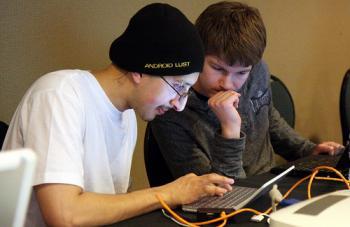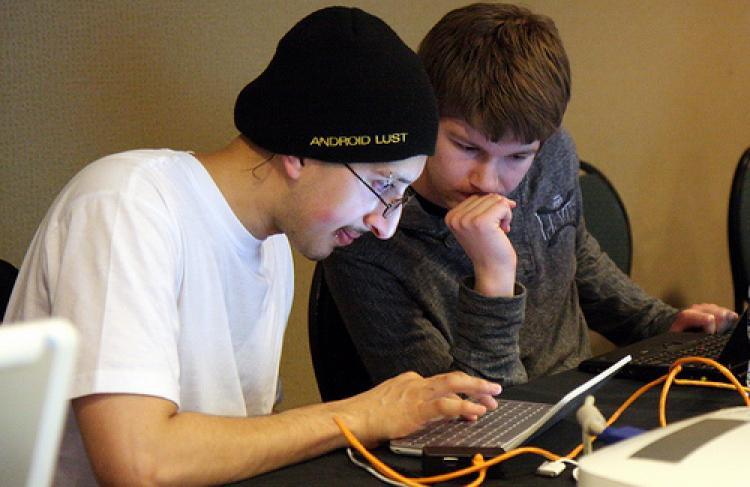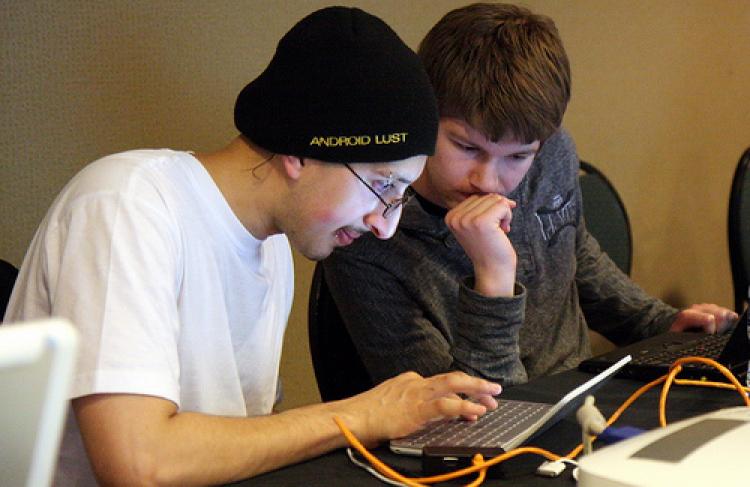Exploring Hacker Culture
Hackers. They’re wizards of electronic information. We often view them as nefarious individuals whose work can have the potential to devastate millions. But did you know that some also work hard to protect you?

CODE CRACKING: Pwn2own contestants at the CanSecWest Computer and Information Security Conference in Vancouver, British Columbia. Garrett Gee http://garrettgee.com
|Updated:





